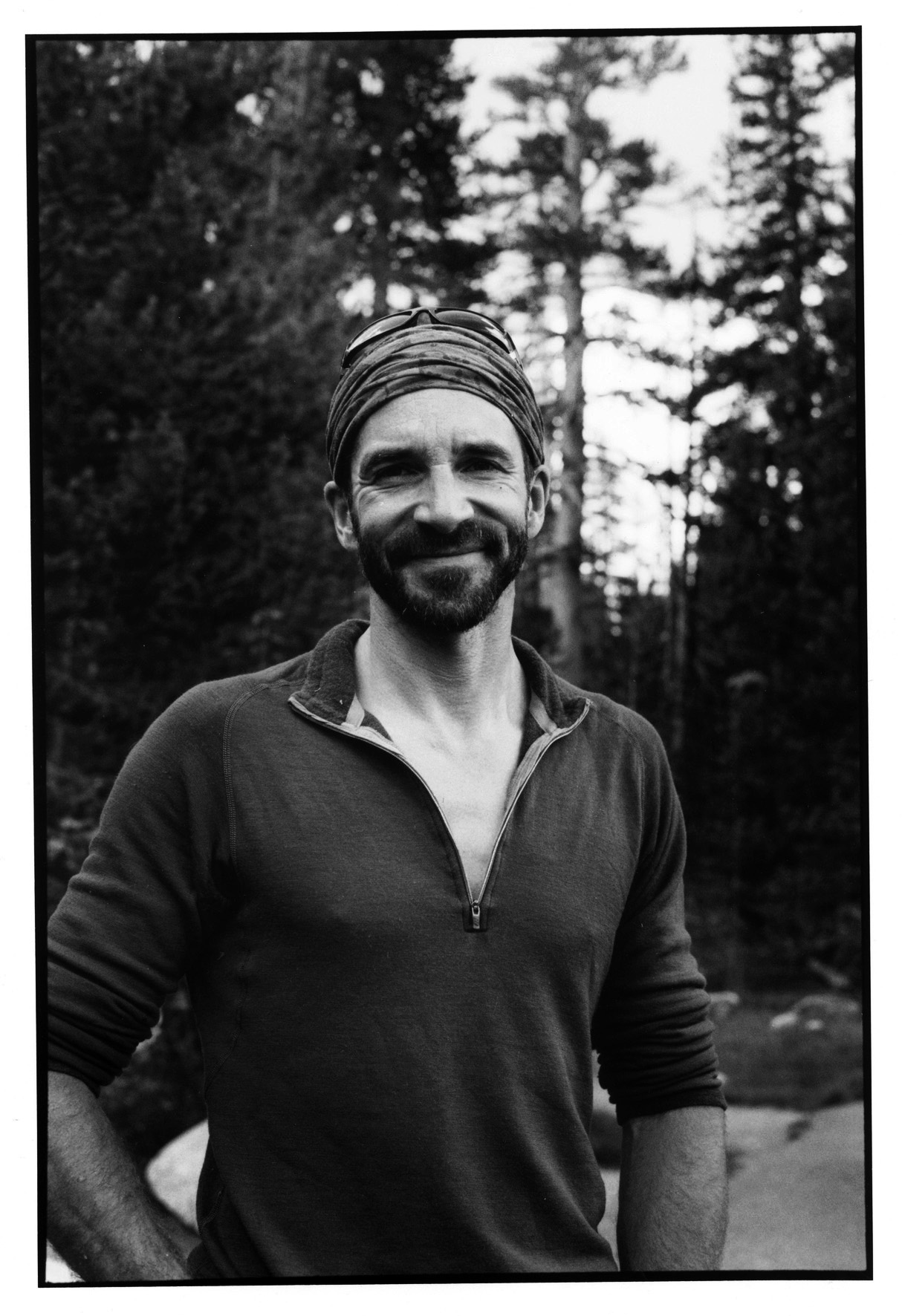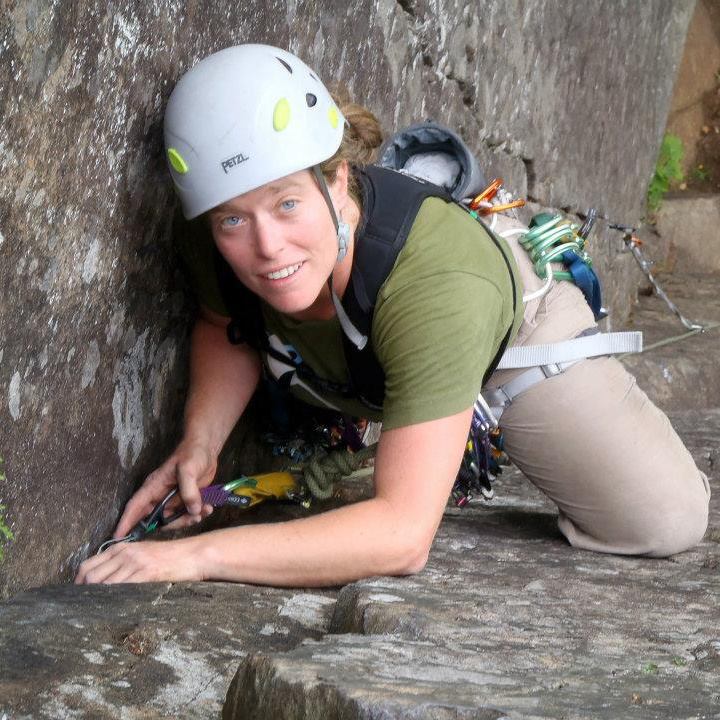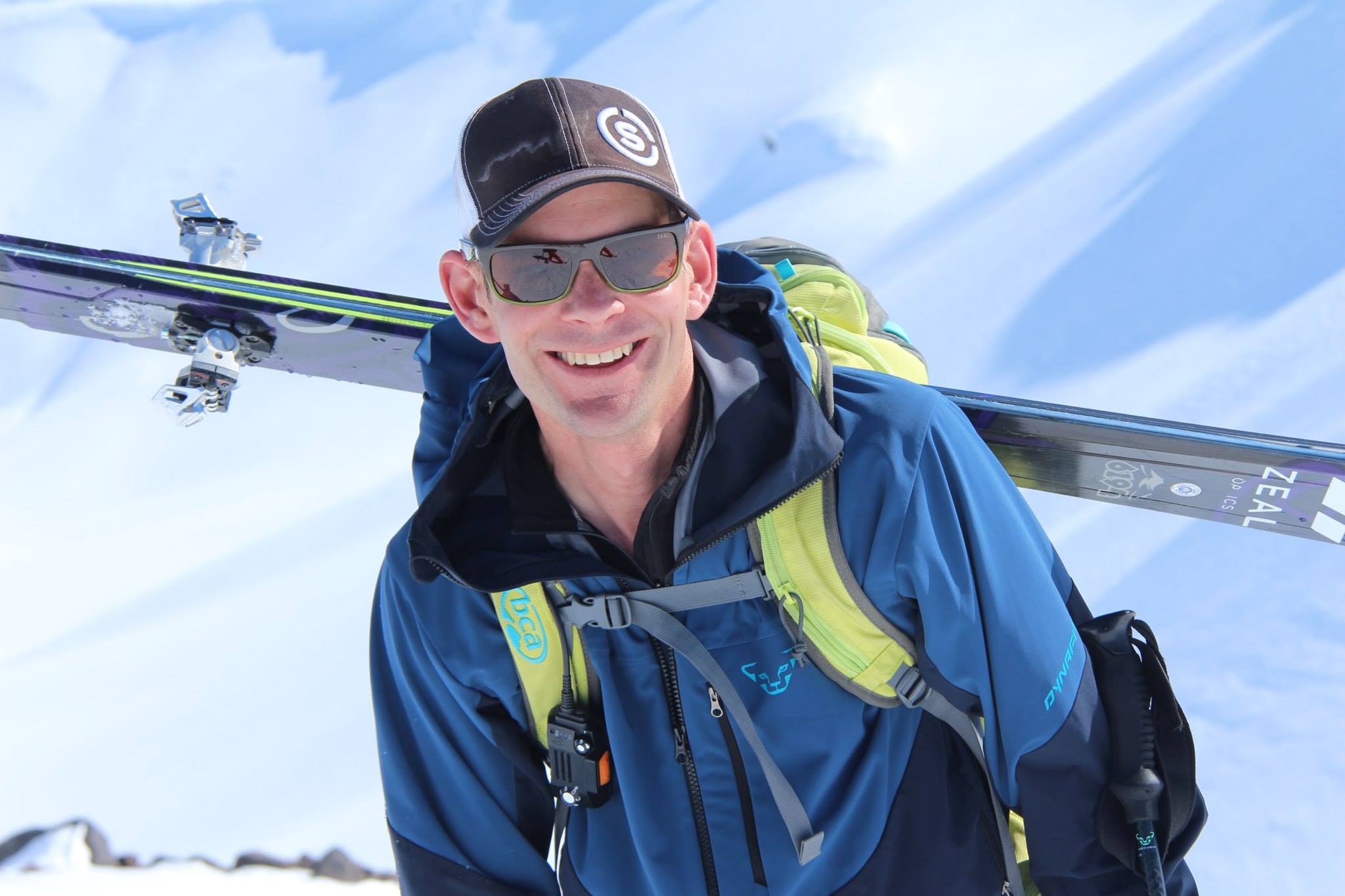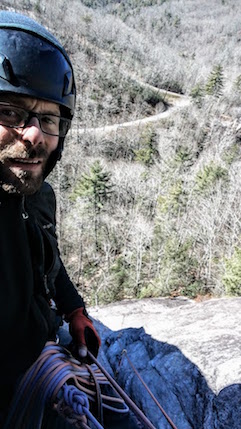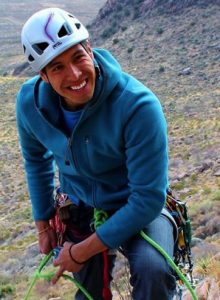Warrior’s Way: Dealing With Performance Anxiety, Part I
 By Arno Ilgner, Certified SPI. This is the first in a series of articles on how guides can deal with performance anxiety.
By Arno Ilgner, Certified SPI. This is the first in a series of articles on how guides can deal with performance anxiety.
Performance anxiety is one of the biggest distractions of our attention while guiding in the mountains. Though we love guiding, and we work very hard to be certified in the terrain in which we guide, many things can cause anxiety. Guiding is inherently dangerous. Storm clouds may loom in the distance, a client may be taking his harness off to go to the bathroom while en route on a multi-pitch climb, children may be running around without their helmets on… the dangers are endless. And the result is we’re anxious about whether or not we can keep them safe and also about how we will perform (and the effect that might have on our egos). But, by understanding brain science and how the mind is out of sync with how the brain works, we can get a glimpse on how to control this anxiety. We’ll go into this topic in the next two lessons. This lesson will give us an intellectual understanding of this process; the next lesson will give us an experiential understanding of it.
Let’s look at how the brain works. Two phrases have become popular in brain research:
- Neurons that fire together, wire together (neurons fire each time we do an action, creating a neural network that creates a habit).
- Use it or lose it (if we stop using the neural network, we lose it; it will deteriorate).
But there’s new research that builds on these two points. It has to do with myelin, the covering on neurons. Myelin is like insulation on an electrical wire. It keeps electrical charges from leaking from the neuron and also speeds the signal to the synapse. Each time we do an action, myelin adds a wrap to the neuron.
There are a few important points about the way myelin works. It’s slow, requires stress, and is a process. It’s slow because each myelin layer is thin. It requires many layers to diminish leaks and speed the electrical signal. It requires stress. Myelin wrapping doesn’t occur when we’re in our comfort zones. Myelin is stimulated to wrap the neurons in response to stress. Finally, it’s a process that occurs in the moments when we’re engaged in stress, not when we’re at a comfortable end result.
Now, think about how the mind works. It tends to work in opposition to how the brain and myelin work. Instead of slow, stress, and process, the mind is oriented toward fast, comfort, and end results. The mind wants to make fast progress and achieve end results, and be comfortable doing it. The mind is totally misaligned with how the brain works.
Mental training must address this misalignment. It must shift people’s motivation from fast, comfort, and end results to slow, stress, and process. So, how do we do such mental training. First, we must understand how the brain works. This understanding of how neurons fire and how myelin wraps gives us evidence for how we should do our mental training. Second, we need awareness that the mind is in opposition to how the brain works. We can determine how misaligned the mind is by assessing what motivates us. Are we motivated by making fast progress, by achieving end results, and by comfort? Most people are, because they’ve never examined their motivation. Finally, we need to apply this realignment when we guide to support how the brain works.
We’ll go into applying this process in the next lesson, since it addresses the experiential component of dealing with performance anxiety. In this lesson, we’ll do the mental training; we’ll dig deeper into intellectually understanding how to make the mental shift in our motivation.
The ego is primarily responsible for this fast, comfort, end-result tendency. The ego sits on a throne of self importance and over-identification with our personal history. It creates an identity based on our achievements. We feel important because of those achievements or not important if our achievements don’t measure up to what others have achieved. Achieving end results, fast, is what the ego desires. The problem with the ego is it’s never satisfied. It’s constantly in a comparison game. When we achieve our IFMGA status, we feel important, until the ego starts seeking something more. When we’re the best guide in our local area, we feel important, until a better guide moves in. The ego is constantly climbing onto the throne and getting knocked off it.
Mental training needs to dethrone the ego. We dethrone the ego by shifting to intrinsic motivation. This type of motivation values a slow, stressful, learning process. We want to be in the stress, which occurs while guiding and instructing, because there’s no place we’d rather be. We value slow, because why rush it? We’re enjoying the instructing/guiding process itself. We want to be in the process, more than at the end result. We need to investigate our motivation. Doing this brings our motivation to our conscious awareness. From that awareness we see the ego’s comparison game as shallow. Then we can identify intrinsic aspects of instructing/guiding that we value and begin focusing on them.
I’m not suggesting that achieving end results is wrong. Identifying end goals, such as earning full American Mountain Guide/IFMGA status, can guide our actions. But once goals are set, we must become extremely receptive to the learning process that takes us there. That’s the journey we need to walk and enjoy. That’s what makes up the majority of our climbing lives and what supports how the brain works.
By making the mental shift from fast, comfort, and end results to slow, stress, and processes we don’t even need to focus on dealing with performance anxiety. We shift to a place where no performance anxiety exists. This is effective mental training. Instead of using tricks and techniques to deal with a problem, we shift to a place where the problem no longer exists. Doing this frees our attention to focus on the performance completely. We don’t want to achieve a fast, comfortable, end result; we want to experience a slow, stressful, process. We want to experience the achievement of making a client’s dream in the mountains come true or in teaching a beginner climber new skills.
Arno Ilgner, of The Warrior’s Way ® / Desiderata Institute, says the intention of his organization is “to help people improve self-awareness so they can become more powerful when interacting with challenging situations, whether they are challenged by a demanding rock climb, operating a competitive business, being a better teacher, or more present parent.”Learn more on their website.


